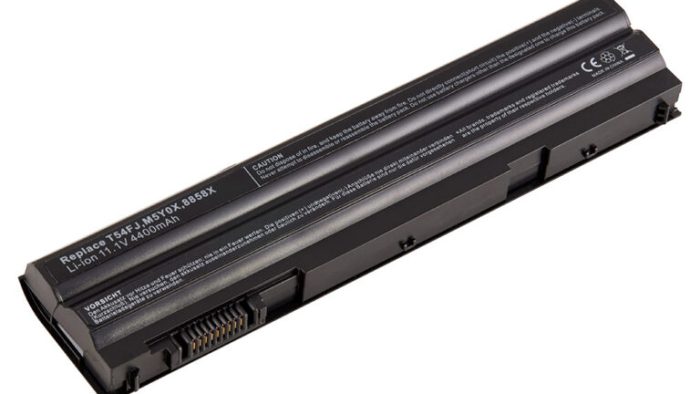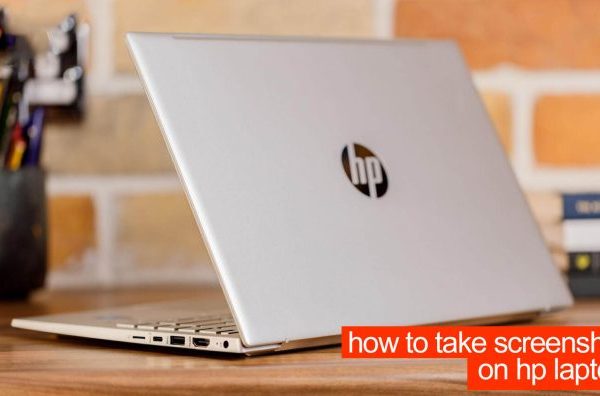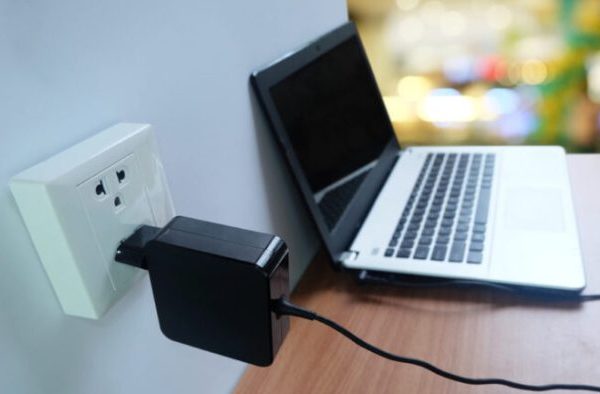Are you a laptop user who’s always on the go? Do you ever wonder what type of battery your device uses? Well, you’re not alone. In this blog post, we’ll be exploring one of the most common types of batteries found in laptops: lithium-ion batteries. From their advantages to their limitations, we’ll delve into everything you need to know about these powerful energy sources. So, grab your laptop, and let’s dive in!
What are lithium batteries?
Lithium batteries are a type of rechargeable battery that uses lithium ions to store and release energy. These batteries work by moving lithium ions between two electrodes – a positive electrode (cathode) and a negative electrode (anode) – through an electrolyte. When you charge the battery, the lithium ions move from the cathode to the anode, and when you use the battery, the ions move in the opposite direction.
Lithium batteries are popular in laptops, smartphones, and other portable devices because they are lightweight, have a high energy density, and hold a charge for a long time. However, like all types of batteries, they have their advantages and disadvantages.

Image Source
Do laptops use lithium batteries?
The short answer is yes, most laptops use lithium-ion batteries. These batteries have become the standard for laptops and other portable devices because they offer several benefits.
Benefits of lithium batteries in laptops:
Long lifespan: With proper care, lithium batteries can last for several years.
Lightweight: Lithium-ion batteries are much lighter than other types of batteries, making them perfect for portable devices like laptops.
High energy density: Lithium-ion batteries can store a lot of energy in a small package, allowing laptops to run for several hours on a single charge.
Fast charging: Lithium-ion batteries can charge much faster than other types of batteries, reducing the time it takes to get your laptop up and running again.
No memory effect: As mentioned earlier, lithium-ion batteries don’t have a memory effect, so you don’t need to discharge them fully before recharging them.
In addition to these benefits, lithium-ion batteries have a long lifespan, which means you won’t have to replace them as often as other types of batteries. Plus, they have a low self-discharge rate, so you can leave your laptop unused for a few weeks or even months, and the battery will still hold a charge.
What type of lithium battery does a laptop use?
Well, there are two main types of lithium batteries: Lithium Polymer (Li-poly) and Lithium Ion (Li-ion).
Li-poly batteries use a polymer electrolyte that’s semi-solid and highly conductive. Meanwhile, Li-ion batteries use the reduction process of lithium ions to supply energy, making them easily portable due to their reversible reduction phenomenon.
So, which one is used in laptops? You guessed it, it’s the rechargeable Li-ion battery. These batteries are commonly found in laptops, smartphones, tablets, and cameras. On the other hand, Li-poly batteries are not used in laptops, but you can spot them in non-rechargeable devices such as watches and portable cameras.
How to identify if your laptop has a lithium battery
Now that we know most laptops use lithium batteries let’s discuss how you can identify if your laptop has a lithium battery. Here are a few steps you can take:
Check the user manual: The user manual that came with your laptop should indicate what type of battery your device has.
Check system settings: You can also check the system settings on your laptop to identify the battery type. On a Windows laptop, click on the Start menu, then click on “Settings,” and then click on “System.” Next, click on “Power & sleep,” and you should see information about your laptop’s battery, including its type. On a Mac, click on the Apple menu, then click on “About This Mac,” and then click on “System Report.” Next, click on “Power,” and you should see information about your laptop’s battery, including its type.
Physically inspect the battery: If you’re comfortable with it, you can physically inspect the battery on your laptop to see what type it is. To do this, you’ll need to power off your laptop, unplug it, and remove the battery. Look for any labels or markings on the battery that indicate its type. If you’re unsure about removing the battery yourself, it’s best to take your laptop to a professional to avoid damaging any components.
By taking these steps, you can determine if your laptop has a lithium battery. Remember that lithium batteries are the most common type of battery in laptops, so chances are, if you have a modern laptop, it has a lithium battery.
Caring for your laptop’s lithium battery
Now that we know most laptops use lithium batteries, it’s important to discuss how to care for them properly. Proper battery care not only helps to prolong the battery’s life but also ensures optimal performance and safety. Here are a few tips on how to care for your laptop’s lithium battery:
Avoid overcharging: Overcharging a lithium battery can lead to reduced battery life or even a fire hazard. To avoid this, make sure to unplug your laptop once it’s fully charged.
Keep it cool: High temperatures can also reduce the lifespan of a lithium battery. Try to keep your laptop in a cool, well-ventilated area, and avoid exposing it to direct sunlight or extreme heat.
Use the right charger: Using the wrong charger can also damage a lithium battery. Always use the charger that came with your laptop, or a charger that is specifically designed for your laptop’s battery.
Don’t let it fully discharge: Unlike older battery types, lithium batteries don’t need to be fully discharged before recharging. In fact, letting a lithium battery fully discharge can also reduce its lifespan. Instead, try to keep your battery charged between 20% and 80% to maximize its lifespan.
Update your software: Keeping your laptop’s software up to date can also help prolong your battery’s lifespan. Software updates can include improvements to battery life and management, which can help your battery last longer.
Disposing of lithium batteries
Lithium batteries can be a great source of power for your laptop, but they can also be hazardous if not disposed of properly. Here are some points to keep in mind before disposing of a lithium battery:
Don’t throw it in the trash: Lithium batteries should not be thrown in the trash as they can pose a fire hazard. Instead, check with your local government or recycling center for proper disposal options.
Recycle it: Recycling is the best way to dispose of a lithium battery. Many cities have battery recycling programs, and there are also online resources to help you find a recycling center near you.
Follow the manufacturer’s instructions: Some manufacturers may have specific instructions for how to dispose of their lithium batteries. Be sure to check the manufacturer’s website or user manual for guidance.
Tape the contacts: Before disposing of a lithium battery, cover the metal contacts with electrical tape or place it in a plastic bag to prevent any accidental discharge.
Ideal charging range for lithium batteries
Lithium batteries are known for their high energy density and long lifespan, but they also require proper charging to maintain their performance. So, what is the ideal charging range for a lithium battery in a laptop?
Generally, lithium batteries should be charged between 20% and 80% to maintain optimal performance and lifespan. This means you should avoid letting your laptop’s battery fully discharge or charging it to 100% if possible.
Keeping your battery charged between 20% and 80% can help to prevent overcharging and undercharging, which can both cause damage to the battery and reduce its lifespan. Overcharging can cause the battery to overheat and become unstable, while undercharging can cause the battery to lose its capacity over time.
It’s important to note that modern laptops and operating systems are designed to help manage lithium battery charging automatically. For example, many laptops have built-in battery management software that can help prevent overcharging and undercharging. However, it’s still a good idea to be mindful of your laptop’s battery usage and charging habits.
Conclusion
It’s safe to say that laptops have lithium batteries, and they are essential for powering the device. These batteries are designed to be durable and long-lasting, but they do have a limited lifespan. To ensure that your laptop battery lasts as long as possible, it’s crucial to take good care of it by following some best practices, such as not exposing it to extreme temperatures or discharging it completely. By taking care of your laptop’s lithium battery, you can ensure that your device will continue to provide you with the power you need to work, play, and stay connected on the go.
Faqs
What type of battery do most laptops use?
Most laptops today use lithium-ion batteries due to their high energy density, long lifespan, and lightweight.
How do lithium batteries work?
Lithium batteries work by using lithium ions to store and release energy. When the battery is charged, lithium ions are stored in the anode. When the battery is discharged, the lithium ions move to the cathode, releasing energy.
Can I replace the lithium battery on my laptop?
Yes, in most cases, you can replace the lithium battery in your laptop. However, it’s important to follow the manufacturer’s instructions and use the correct replacement battery.
How can I prolong the life of my laptop’s lithium battery?
To prolong the life of your laptop’s lithium battery, you can avoid overcharging, keep it cool, and use the right charger. It’s also a good idea to follow the ideal charging range of 20% to 80%.
Is it safe to dispose of a lithium battery in the trash?
No, it’s not safe to dispose of a lithium battery in the trash. Lithium batteries can be hazardous and should be recycled properly. Contact your local waste management facility for instructions on how to dispose of lithium batteries.
How do I know if my laptop’s battery is a lithium-ion battery?
To identify if your laptop has a lithium battery, you can check the user manual, and system settings, or physically inspect the battery. The battery may also have a label that indicates the type of battery it is.
Can lithium batteries explode?
While rare, lithium batteries can potentially explode or catch fire if they are damaged, overcharged, or exposed to high temperatures. It’s important to follow proper care and handling instructions to prevent accidents.





